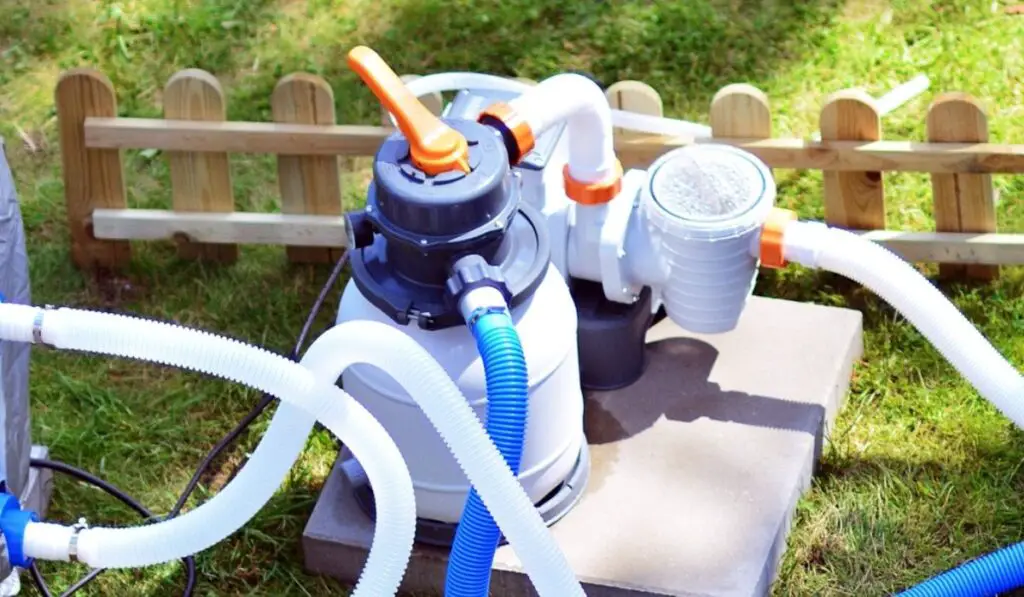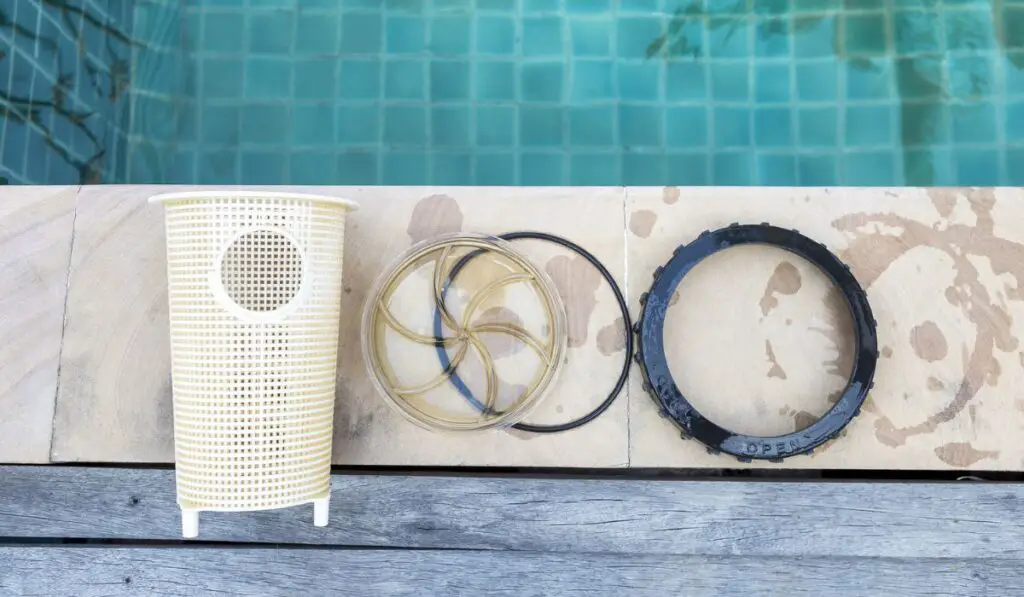Pool pumps draw in water from the various drains in your pool, pass it through a filter, and then pump it back into the pool once it’s clean. Similar to a car engine, a well-maintained pool pump will ensure a healthy pool, allowing you and your family to enjoy the summer by swimming in clean, contaminant-free water.
Take care of your pool pump by routinely checking the filter outlet pressure and water levels. Backwash the filter regularly, and check the pump basket at least once a month. A well-maintained pool pump can last 8-12 years. In general, it’s recommended to run your pump for about eight hours a day.
Pool pumps make pool maintenance much easier by ensuring proper water circulation and filtration. Let’s look at how you can properly take care of your own pool pump so you can return the favor.
Does a Pool Pump Need Maintenance?

The main purpose of a pool pump is to draw in water from your pool, pass it through the filtration system to remove dirt and debris, and then push the clean, sparkling water back into your pool.
A pristine, well-functioning pump helps make pool upkeep easier. However, like any other mechanical device, pool pumps also need regular maintenance, so they can stay in prime condition and continue operating efficiently.
How Do You Take Care of a Pool Pump?
Maintaining a pool pump is essential and includes year-round servicing. Here are a few ways you can take care of your pool pump and keep it in excellent condition:
Perform regular checks
Check the components of your pool pump for leaks, unusual sounds, decayed or broken seals, or any other abnormalities every week. This will allow you to detect minor issues as soon as they pop up, preventing expensive repairs or premature pump replacement.
It’s also advisable to check the pressure gauge reading as part of your weekly maintenance. The ideal reading number varies with the condition of the pool and the size of the pump, so make sure you console the owner’s manual for the recommended pressure level.
If the pressure is 10psi above the suggested baseline, try backwashing the pool or cleaning the filters. Keep in mind that extremely high pressure can irreparably damage the pipes and motor, so it’s better to call a pool technician to fix this issue.
If you have a pressure gauge built into your system, it’s likely on the sand filter or sand filter outlet. As the filter fills up, the pressure goes down indicating it’s harder for the pump to push water through the filter. A bit of this is normal, and it’ll go back up when you backwash the filter.
A clogged filter would have a pressure of 0 – no flow – so you can understand where you are on the filter getting full or clogged by this pressure reading.
Clean the pump basket

Regularly cleaning the pump basket can help increase the life of your pool pump. It’s better to check and clean the pump and skimmer baskets twice every week and remove all debris before replacing them.
It’s also a good idea to lubricate the o-rings and pump lid seals to ensure they’re working efficiently.
Check the pool water level
If your pool pump starts sucking in air instead of water, it can result in irreparable damage to its operation. Make sure your pool’s water level is at least halfway up your skimmer box to prevent any serious issues.
Maintain the filters
Whether your pool uses a sand, diatomaceous, or cartridge filter, it’s important to clean the filtration system periodically.
A clean filter ensures an unobstructed water flow and a healthy and sanitary swimming environment. It also reduces stress on your pool equipment and extends the life of your pump and filtration system.
Clean the pool pump and surrounding areas
Use a duster or damp cloth to wipe the dust and debris off the pump at least once a week. It’s also advisable to clean the surrounding areas with a broom.
If the vents are clogged with leaves, branches, or other debris, make sure you clean them as well. Vents help cool down the motor, and if left blocked, can lead to major equipment damages.
Replace old pump motor
If your pump motor has passed its expected lifespan or has expensive repair issues, then it’s best to opt for a motor replacement. It’s also advisable to replace the motor if it’s not meeting expectations or if the issue is beyond repair.
What Is the Average Lifespan of a Pool Pump?
Pool pumps have an average lifespan of around 8 to 12 years. It’s also perfectly normal for their components to wear down over time.
Luckily, swimming pool technology has progressed amazingly in the last 10 years. Modern models consume much less electricity than their predecessors, due to their variable speeds that you can dial up or down.
If you have an older or deteriorating pool pump, then it’s best to replace it with a newer, variable-speed pump. While this might seem expensive, it will ultimately end up saving you money in the long run.
How Many Hours a Day Should You Run Your Pool Pump?
The answer to this question depends on your pool’s turnover rate or the total number of hours the pump takes to push all the pool water through the filter. You can easily calculate this rate with the following formula:
GPH or gallons per hour that need to be pumped = Pool volume / 8.
Your pool should circulate all the water at least once every day, so it’s best to run your pool for around eight hours a day. However, you don’t need to run the pump consecutively. Instead, you can just turn it on for three hours before leaving for work and then run it for another five in the late evening.
